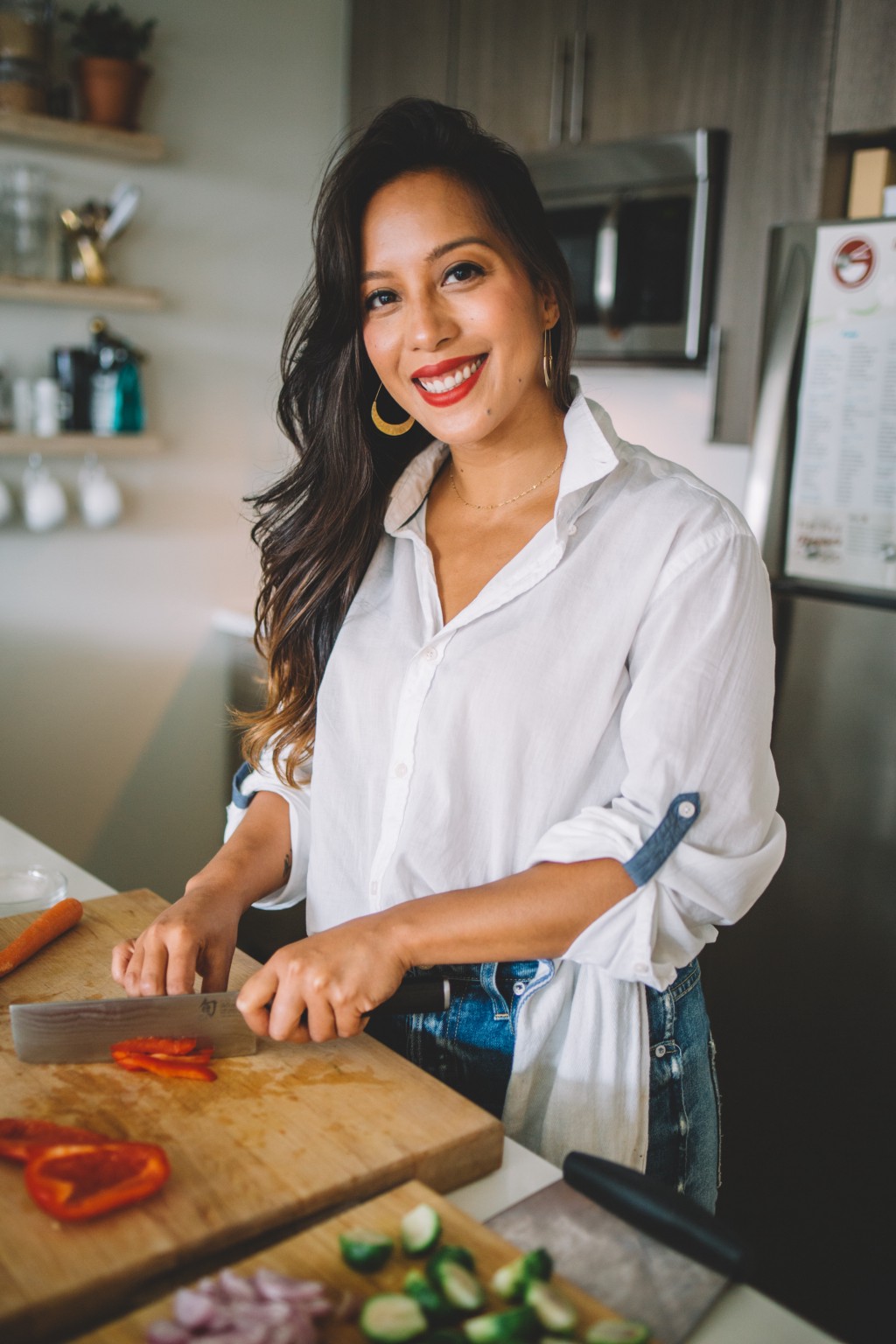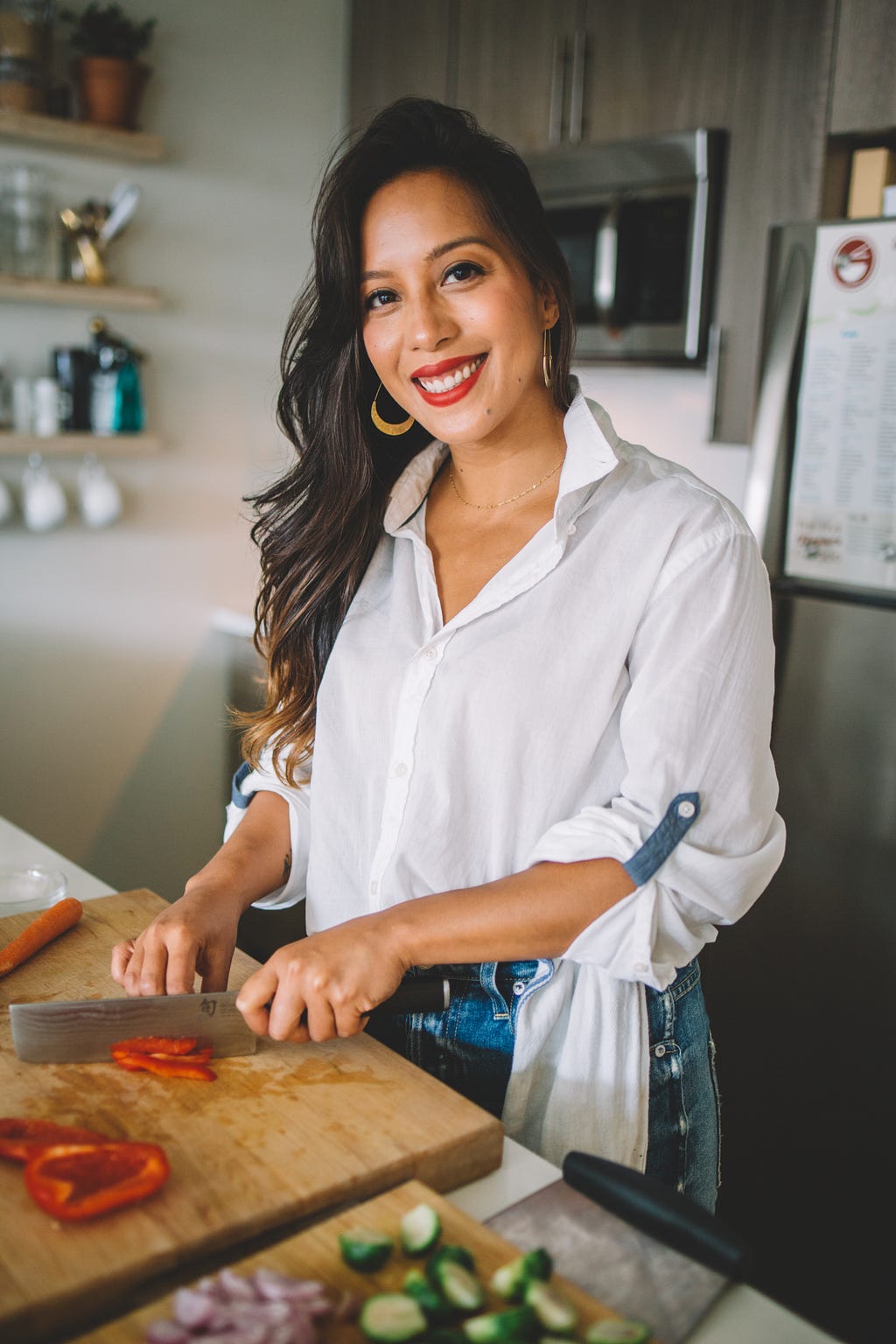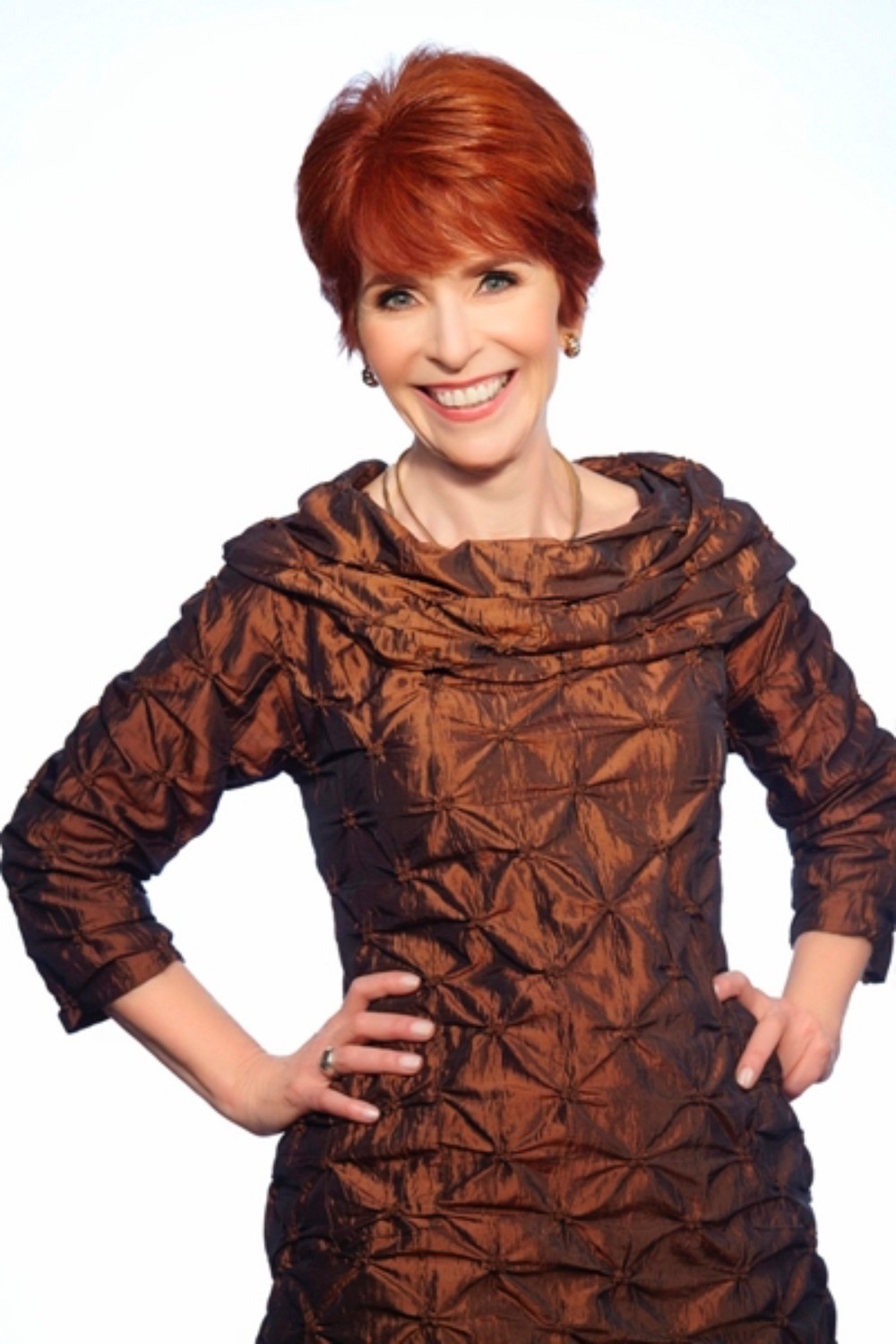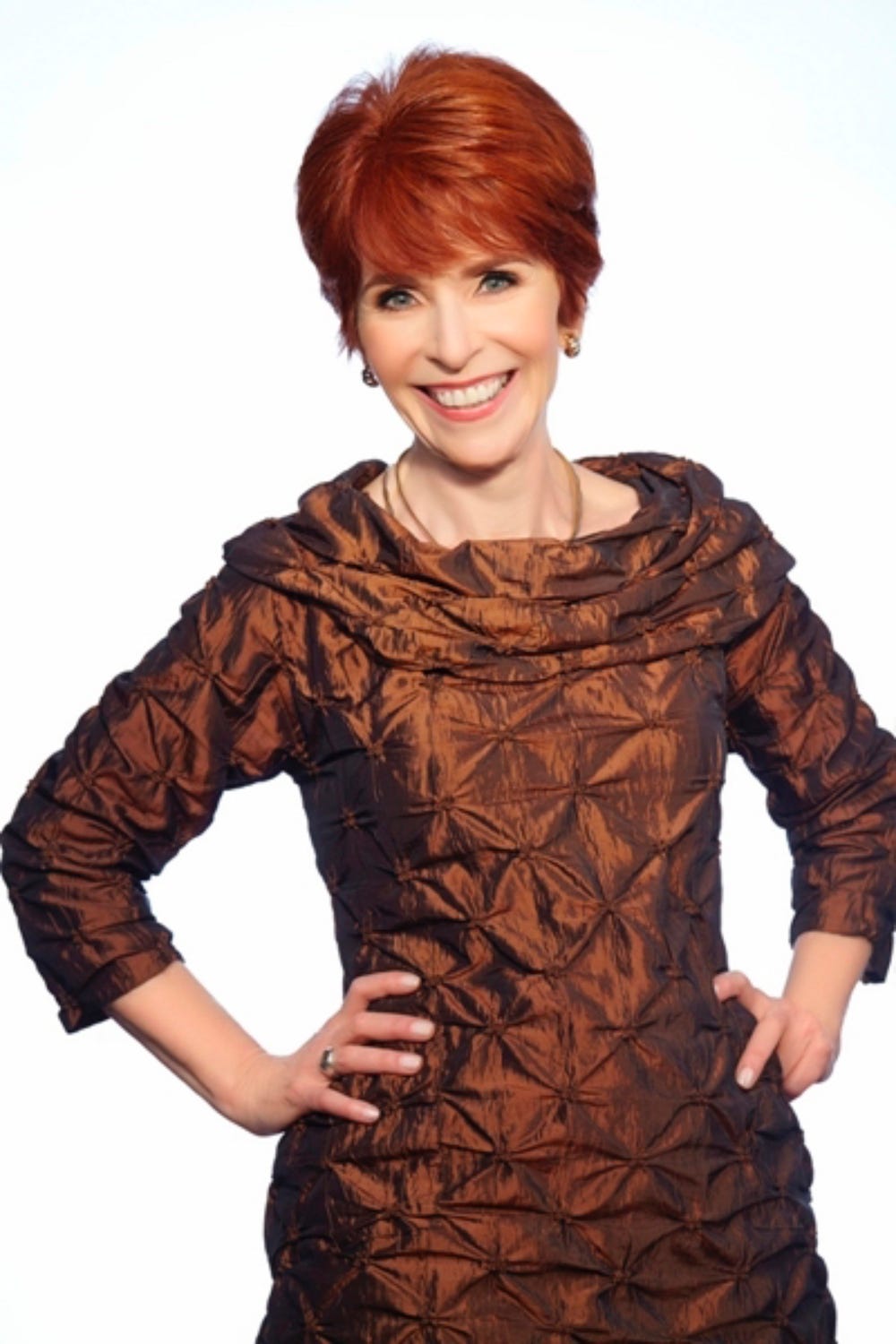An Interview With Candice Georgiadis
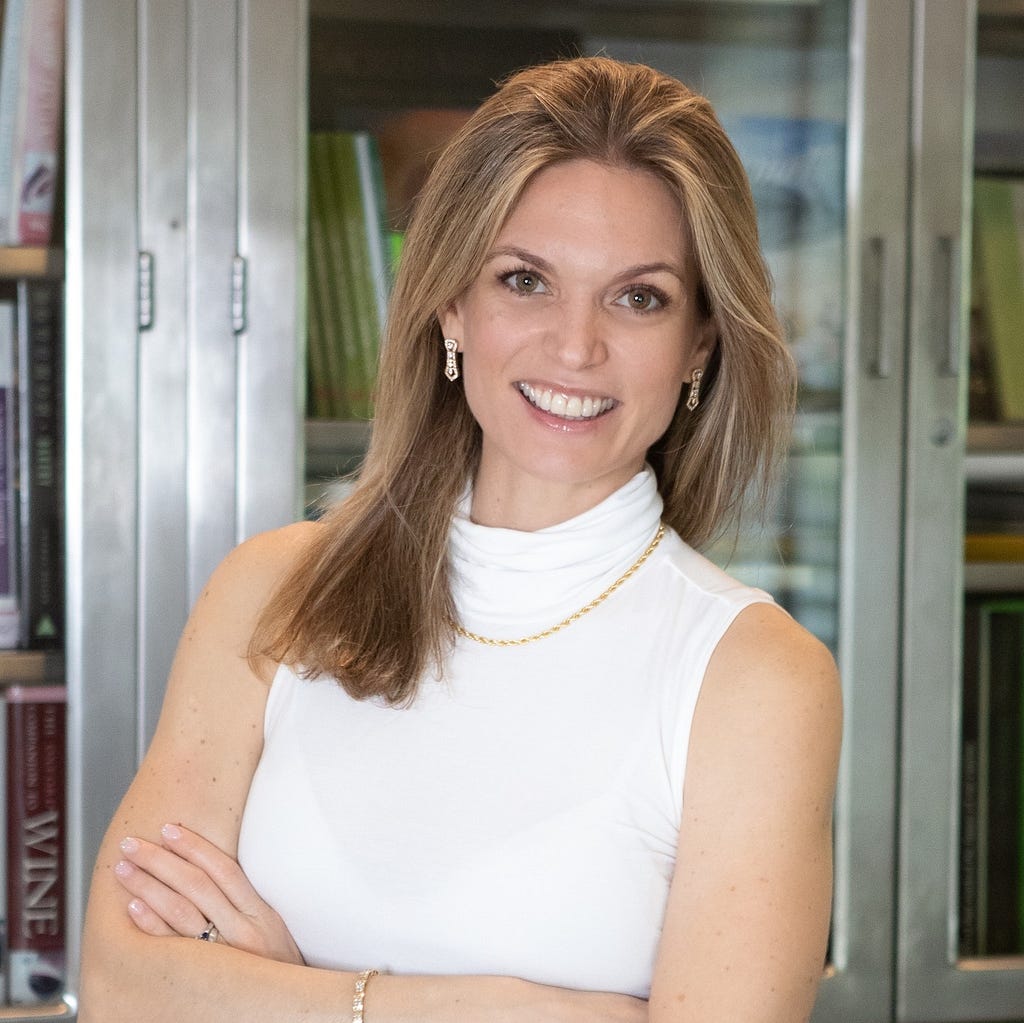
Recognize when it’s happening and name it. Consider the feeling of Imposter Syndrome as valuable information. It’s telling you that you’re actively believing you’re inadequate at that moment.
As a part of our series about how very accomplished leaders were able to succeed despite experiencing Imposter Syndrome, I had the pleasure of interviewing Amy Wong.
Amy Eliza Wong is a certified executive coach who has devoted more than 20 years to the study and practice of helping others live and lead on purpose. She works with some of the biggest names in tech and offers transformational leadership development and internal communication strategies to executives and teams around the world. Her new book is Living on Purpose: Five Deliberate Choices to Realize Fulfillment and Joy (BrainTrust Ink, May 24, 2022). Learn more at alwaysonpurpose.com.
Thank you so much for joining us! Our readers would love to “get to know you” a bit better. Can you tell us a bit about your backstory?
Yes, thank you. As a child I was obsessed with math and piano. I studied (and taught) both through high school and college, got my degree in mathematics at UC Berkeley, and ended up in the tech industry for 10 years at Sun Microsystems. Throughout all my roles at Sun, I recognized the common denominator that thread throughout my life in my passions, my studies, and all my different positions — whether as a program manager or UI architect — was my fascination for how people perceived and interpreted information at hand.
I recognized that I had a gift for being able to identify what others didn’t know about what they didn’t know that kept them stuck and unable to move forward. I was able to reflect those unknowns back to them in a way so that they could derive truths for themselves and catalyzing real learning for transformation.
When my first child was born in 2008 I had a massive breakthrough moment and I committed to embodying my true gifts, not just to achieving goals. I went to graduate school and got my Masters in transpersonal psychology simply because it was fascinating and my heart knew I needed to study it. That’s when coaching “found me.” Every day since that discovery has been nothing short of a miracle. No part of what I do is “work,” but instead is a way of being and a gift I get to experience every day.
Can you share with us the most interesting story from your career? Can you tell us what lessons or ‘take-aways’ you learned from that?
In 2013, a drug and rehab center in Sacramento inquired into my coaching and asked if I did group coaching. At the time I didn’t but I very much wanted to. I was brutally honest and said, “No, but I’d love to!” They decided to take a chance on letting me run their group coaching sessions once a week for 2 hours with 30 clients in a room at a time. When I learned that each week I’d have some new faces, while others would have graduated, I knew I was in for a challenge. That meant that I could never rely on a regular program or “schtick” — it would always have to be fresh and new. Despite the imposter syndrome I felt with doubts that I’d be up for this task, I pushed through the discomfort. It was so uncomfortably exciting that I knew I was meant to do this work.
I coached for that drug and rehab center and their other locations for over a year and it has been the best part of my coaching career. I learned so much about the human spirit, connection, and resiliency, and I learned a ton about myself and my facilitation abilities. The big aha for me was that the most growth happens alongside the scariest and most uncomfortable opportunities, and I’m not the only one who benefits!
What do you think makes your company stand out? Can you share a story?
I’m typically known for leadership communication coaching, executive presence and public speaking coaching, and for anything pertaining to Conversational Intelligence. But what clients don’t immediately realize is that communication is an effect — or a symptom — of the relationship we have with ourselves. I’ve been told by a few leaders that I coach in three dimensions and that my approach is multifaceted, providing the space to make sense of the totality of one’s experience.
For example, I had a startup founder come to me to improve his executive presence and improve his pitches. The journey to get to that improved state of authentic confidence and compelling delivery involved transforming aspects of his relationship with himself. We reworked the scaffolding of his mental models and beliefs, and strengthened his relationships through improved conversational intelligence. After a short and very successful engagement he said that it felt like “coaching on steroids” and “therapy for his soul.” His transformation was a real shift, not just a quick fix.
None of us are able to achieve success without some help along the way. Is there a particular person who you are grateful towards who helped get you to where you are? Can you share a story?
Hands down that’s my husband, Arnold. When I told him I wanted to quit my amazing job in tech and go to grad school and get my Masters in transpersonal psychology with no plan with what I was going to do with it, he lovingly backed me up, no questions asked. His unconditional love and support have made it possible for me to take the big risks to create the successful company that I have today. I couldn’t have done it without his love and commitment to me and to us.
Ok thank you for all that. Now let’s shift to the main focus of this interview. We would like to explore and flesh out the experience of Impostor Syndrome. How would you define Impostor Syndrome? What do people with Imposter Syndrome feel?
An “imposter” is defined as a person who practices deception under an assumed name or character. As a syndrome it’s an experience that some people feel within certain contexts or situations in which they believe they don’t measure up — that they’re actually not good enough to do the job — and that they have everyone fooled. It’s an awful feeling because at the core of it is a consuming feeling of self-doubt.
What are the downsides of Impostor Syndrome? How can it limit people?
A belief that you’re inadequate, not good enough, or not competent is a terrible feeling to entertain, which in itself is a downside. But the weight of that belief is what causes the destruction. The fear, self-doubt, and the consequential inner dialogue take up a lot of inner resources that could be used to navigate accurately, connect authentically, and innovate creatively. With those resources channeled in the direction of self-centered fear we’re not only unable to thrive, but to feel present, grounded and impactful. It’s like trying to run a race with a pair of ankle weights on strapped on. It just weighs you down and keeps you from being ineffective.
How can the experience of Impostor Syndrome impact how one treats others?
I’ve found that there is a range of responses depending on how one reacts to fear itself. On one end of the spectrum, Imposter Syndrome can leave someone riddled with insecurity and afraid of being “found out.” This person will recede and remain quiet. In cases like this, people tend not to share opinions, assert themselves or contribute to the conversation, which is unfortunate because others lose out on a perspective that will add to the job at hand. On the other end, that fear can result in someone over-compensating and desperately attempting to prove themselves worthy. They come off as arrogant and step on others’ toes in the process, stealing credit, bull dozing others in conversation, and so on.
The common thread that runs through the spectrum of responses is that all acts are based out of fear. When fear is running the show, it’s easy to lose awareness of our impact on others. When we’re not mindful of our impact, we can cause unintended consequences, drive others away, or cause others to lose trust in our abilities.
We would love to hear your story about your experience with Impostor Syndrome. Would you be able to share that with us?
When I first joined IDEO in 2011, I had to be mindful of the difference between self-doubt and doubt. I’d been in the technology industry for 10 years and entering into the design industry was a whole new ball game. While I knew I was hired for my coaching and facilitation ability, I still felt like I was a fish out of water not having had any experience in design. I had to actively orient my mindset out of self-doubt and objectively look at the knowledge gaps I could close. Forcing myself to look objectively at what I knew and what I didn’t know, and also recognizing that it was going to be a process to identify what I didn’t know that I didn’t know, was a process that kept Imposter Syndrome as an option to entertain, not a way of being. I had to actively work not to choose it.
Did you ever shake the feeling off? If yes, what have you done to mitigate it or eliminate it?
Yes, fortunately. It took me reminding myself that there is a difference between self-doubt (doubt in my inherent capability or capacity) and doubt (question about what I objectively know and don’t know). It took reminding myself that doubt is healthy and my job was to close knowledge gaps and skill gaps. I had to remind myself that there was no room to doubt my self, and I would often recall the image of adding weights to my body while running a race just to remind myself how futile self-doubt is.
In your opinion, what are 5 steps that someone who is experiencing Impostor Syndrome can take to move forward despite feeling like an impostor? Please share a story or an example for each.
1. Recognize when it’s happening and name it. Consider the feeling of Imposter Syndrome as valuable information. It’s telling you that you’re actively believing you’re inadequate at that moment.
2. Make the distinction between self-doubt and doubt. Ask yourself if it’s worth entertaining a belief that you’re not good enough — doubting yourself — or if it would be more constructive to objectively look at what you know and what you don’t know. (When asking yourself this intentionally, you’ll always opt for doubt over self-doubt!)
3. Remind yourself that as a human, there’s no way to be perfect and no way to know it all. Your job is to remove the unnecessary weight of limiting beliefs and show up and do the best you can. Also, decide that your best is enough.
4. Affirm that you’re already whole and complete. Not perfect, but capable, resourceful, and resilient.
5. Actively practice a growth mindset. Seek feedback and honor it as information that you’re on track, not evidence of your worth! Use feedback as a way to continually improve and create positive impact.
You are a person of great influence. If you could inspire a movement that would bring the most amount of good to the greatest amount of people, what would that be? You never know what your idea can trigger. 🙂
I want everyone on the planet to know that they’re whole, complete, worthy, deserving, and enough. My life’s mission is to help heal the planet by minding the relationship each person has with themselves. The moment one knows themselves as worthy, whole, and complete and practices true unconditional self-love, they see others and the world with true, real, eyes. Compassion, care, and understanding emerge. That’s when the world starts to heal.
We are blessed that some very prominent leaders read this column. Is there a person in the world, or in the US, with whom you would love to have a private breakfast or lunch, and why? He or she might just see this, especially if we tag them 🙂
I’m really inspired by Carla Harris. She’s an incredible force in the world, a positive influence, and a role model for what’s possible for women. She exudes wisdom, kindness, and compassion and has a lovely presence of warm authority. Not only am I certain I would learn a ton from her, she feels like she would be a really good friend. 🙂
How can our readers follow you on social media?
Linkedin: @amyelizawong
Thank you so much for these insights! This was so inspiring!
Amy Wong On How To Thrive Despite Experiencing Impostor Syndrome was originally published in Authority Magazine on Medium, where people are continuing the conversation by highlighting and responding to this story.


